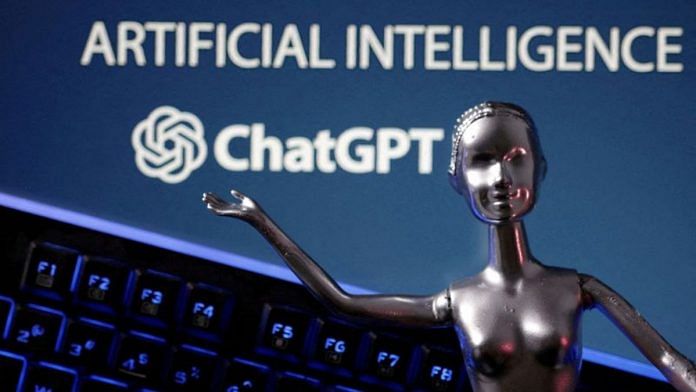Thank you dear subscribers, we are overwhelmed with your response.
Your Turn is a unique section from ThePrint featuring points of view from its subscribers. If you are a subscriber, have a point of view, please send it to us. If not, do subscribe here: https://theprint.in/subscribe/
As the world continues to advance in technology, the rise of generative AI is set to revolutionize various industries, potentially reshaping the job landscape by 2030. Generative AI, fueled by machine learning and deep learning algorithms, possesses the ability to automate tasks traditionally performed by humans. While this development may raise concerns about job displacement, it also presents new opportunities and demands for different skill sets. In this article, we will explore how generative AI is likely to impact jobs soon.
- Creative Industries: Generative AI is already making waves in the creative realm by generating art, music, and written content. In 2030, creative professionals may witness AI-generated content competing with their work. While AI can produce impressive output, human creativity, imagination, and emotional connection will remain highly valued. Artists, musicians, and writers will need to adapt, integrating generative AI as a tool to enhance their creative processes or exploring niche areas where AI cannot replicate human ingenuity.
- Content Creation: Generative AI has the potential to automate content creation across various mediums such as news articles, social media posts, and marketing copy. Journalists, content writers, and marketers may experience changes as AI algorithms can produce vast amounts of content at a reduced cost. However, human input will remain indispensable in ensuring accuracy, quality, and the ability to resonate with audiences on an emotional level.
- Data Analysis: Generative AI can revolutionize data analysis by generating synthetic data that mirrors real-world patterns and scenarios. This synthetic data assists data scientists and analysts in making more accurate predictions and deriving insights. While this may streamline certain data analysis tasks, human expertise will remain essential in interpreting results, contextualizing findings, and applying them to real-world scenarios.
- Customer Service: Chatbots and virtual assistants powered by generative AI have already transformed customer service. By 2030, these technologies will become more sophisticated, capable of understanding and responding to a wide range of customer inquiries. This may reduce the need for human customer service representatives in handling routine queries, with AI handling basic interactions and directing complex issues to human agents.
- Translation and Interpretation: The advancement of generative AI in natural language processing and translation will have a significant impact on the translation and interpretation industries. Real-time translation services powered by AI can bridge language barriers. While AI can handle routine translations, human translators will continue to be crucial for complex and nuanced content, ensuring cultural accuracy, and providing context.
- Medical Diagnostics: Generative AI holds great promise in revolutionizing medical diagnostics. By analyzing vast amounts of medical data, AI algorithms can assist in diagnosing diseases, interpreting medical images, and recommending personalized treatment plans. While AI can enhance diagnostic capabilities, medical professionals will remain essential in decision-making, patient communication, and ethical considerations.
- Logistics and Transportation: Generative AI can optimize logistics and transportation through autonomous vehicles, efficient route planning, and predictive maintenance. While this may reduce the need for certain driving-related jobs, it can also create new roles in managing and maintaining AI-driven infrastructure. The logistics industry will require individuals skilled in overseeing AI systems and optimizing operations.
- Manufacturing and Robotics: Generative AI will enhance automation in manufacturing and robotics. AI-powered robots can perform intricate tasks with precision, adapt to changing environments, and improve overall efficiency. While this may reduce the need for manual labor, it will also create demand for individuals skilled in maintaining and programming AI-driven robotic systems.
- The impact of GAI on jobs is still uncertain. However, it is clear that GAI has the potential to significantly change the job market. Workers will need to be prepared to adapt to the changes brought about by GAI. They can do this by reskilling and upskilling to learn new skills that are in demand.
GenerativeAI is a powerful tool that has the potential to create new jobs and improve the lives of many people. However, it is important to be aware of the potential risks of GAI, such as job displacement and bias. We need to work together to ensure that GAI is used in a way that benefits everyone.
These pieces are being published as they have been received – they have not been edited/fact-checked by ThePrint.

